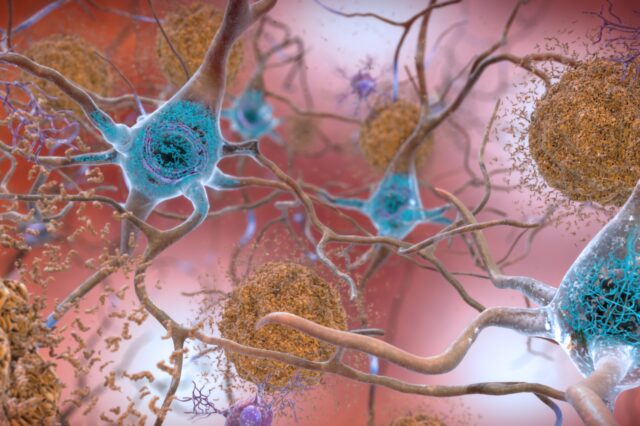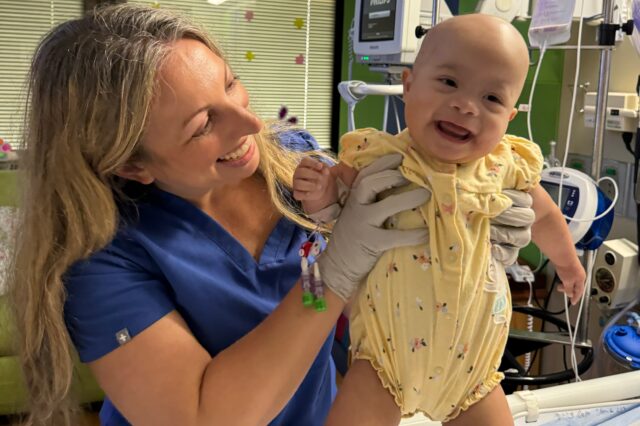Definition
Cancer is the uncontrolled growth of abnormal cells in the body. Cancerous cells are also called malignant cells.
Alternative Names
Carcinoma; Malignant tumor
Causes
Cancer grows out of cells in the body. Normal cells multiply when the body needs them, and die when they are damaged or the body doesn't need them.
Cancer occurs when the genetic material of a cell becomes changed. This results in cells growing out of control. Cells divide too quickly and do not die in a normal way.
There are many kinds of cancer. Cancer can develop in almost any organ or tissue, such as the lung, colon, breast, skin, bones, or nerve tissue.
There are many risk factors for cancer, including:
- Benzene and other chemical exposures
- Drinking too much alcohol
- Environmental toxins, such as certain poisonous mushrooms and a type of mold that can grow on peanut plants and produce a toxin called aflatoxin
- Genetic problems
- Obesity
- Radiation exposure
- Too much sunlight exposure
- Viruses
The cause of many cancers remains unknown.
The most common cause of cancer-related death is lung cancer.
In the United States, skin cancer is the most commonly diagnosed cancer.
In US men, other than skin cancer, the three most common cancers are:
In US women, other than skin cancer, the three most common cancers are:
Some cancers are more common in certain parts of the world. For example, in Japan, there are many cases of stomach cancer. But in the United States, this type of cancer is much less common. Differences in diet or environmental factors may play a role.
Some other types of cancer include:
Symptoms
Symptoms of cancer depend on the type and location of the cancer. For example, lung cancer can cause coughing, shortness of breath, or chest pain. Colon cancer may cause diarrhea, constipation, or blood in the stool.
Some cancers may not have any symptoms. In certain cancers, such as pancreatic cancer, symptoms often do not start until the disease has reached an advanced stage.
The following symptoms may occur with cancer:
-
Chills
- Fatigue
- Fever
- Loss of appetite
- Malaise
- Night sweats
- Pain
- Weight loss
Exams and Tests
Like symptoms, the signs of cancer vary based on the type and location of the tumor. Common tests include the following:
Most cancers are diagnosed by biopsy. Depending on the location of the tumor, the biopsy may be a simple procedure or a serious operation. Most people with cancer have CT scans to determine the exact location and size of the tumor or tumors.
A cancer diagnosis is often difficult to cope with. It is important that you discuss the type, size, and location of the cancer with your health care provider when you are diagnosed. You also will want to ask about treatment options, along with the prognosis (likely outcome), benefits and risks.
It's a good idea to have someone with you at the provider's office to help you get through and understand the diagnosis. If you have trouble asking questions after hearing about your diagnosis, the person you bring with you can ask them for you.
Treatment
Treatment varies, based on the type of cancer and its stage. The stage of a cancer refers to how much it has grown and whether the tumor has spread from its original location.
- If the cancer is in one location and has not spread, the most common treatment approach is surgery to cure the cancer. This is often the case with skin cancers, as well as cancers of the lung, breast, and colon.
- If the tumor has spread to local lymph nodes only, sometimes these can also be removed.
- If surgery cannot remove all of the cancer, the options for treatment may include radiation, chemotherapy, immunotherapy, targeted cancer therapies, or other types of treatment. Some cancers require a combination of treatments. Lymphoma, or cancer of the lymph glands, is rarely treated with surgery. Chemotherapy, immunotherapy, radiation therapy, and other nonsurgical therapies are often used.
Although treatment for cancer can be difficult, there are many ways to keep up your strength.
If you have radiation treatment:
- Treatment is usually scheduled every weekday.
- You should allow 30 minutes for each treatment session, although the treatment itself usually takes only a few minutes.
- You should get plenty of rest and eat a well-balanced diet during the course of your radiation therapy.
- Skin in the treated area may become sensitive and easily irritated.
- Some side effects of radiation treatment are temporary. They vary, depending on the area of the body that is being treated.
If you have chemotherapy:
- Eat right.
- Get plenty of rest, and don't feel like you have to accomplish tasks all at once.
- Avoid people with colds or the flu. Chemotherapy can cause your immune system to weaken.
Talk with family, friends, or a support group about your feelings. Work with your providers throughout your treatment. Helping yourself can make you feel more in control.
Support Groups
The diagnosis and treatment of cancer often causes a lot of anxiety and can affect a person's entire life. There are many resources for cancer patients.
Outlook (Prognosis)
The outlook depends on the type of cancer and the stage of the cancer when diagnosed.
Some cancers can be cured. Other cancers that are not curable can still be treated effectively. Some people can live for many years with cancer. Other tumors are quickly life threatening.
Possible Complications
Complications depend on the type and stage of cancer. The cancer may spread.
When to Contact a Medical Professional
Contact your provider if you develop symptoms of cancer.
Prevention
You can reduce the risk of getting a cancerous (malignant) tumor by:
-
Eating healthy foods
-
Exercising regularly
-
Limiting alcohol
-
Maintaining a healthy weight
-
Minimizing your exposure to radiation and toxic chemicals
-
Not smoking or chewing tobacco
-
Reducing sun exposure, especially if you burn easily
Cancer screenings, such as mammography for breast cancer and stool blood testing or colonoscopy for colon cancer, may help catch these cancers at their early stages when they are most treatable. Some people at high risk for developing certain cancers can take medicines to reduce their risk.
References
Basen-Engguist K, Brown P, Coletta AM, Savage M, Maresso KC, Hawk E. Lifestyle and cancer prevention. In: Niederhuber JE, Armitage JO, Kastan MB, Doroshow JH, Tepper JE, eds. Abeloff's Clinical Oncology. 6th ed. Philadelphia, PA: Elsevier; 2020:chap 22.
Doroshow JH. Approach to the patient with cancer. In: Goldman L, Schafer AI, eds. Goldman-Cecil Medicine. 26th ed. Philadelphia, PA: Elsevier; 2020:chap 169.
National Cancer Institute website. Chemotherapy and you: support for people with cancer. www.cancer.gov/publications/patient-education/chemo-and-you. Updated September 2018. Accessed May 12, 2021.
National Cancer Institute website. Radiation therapy and you: support for people with cancer. www.cancer.gov/publications/patient-education/radiation-therapy-and-you. Updated April 2021. Accessed May 12, 2021.
Siegel RL, Miller KD, Jemal A. Cancer statistics, 2019. CA Cancer J Clin. 2019;69(1):7-34. PMID: 30620402 pubmed.ncbi.nlm.nih.gov/30620402/.
Last reviewed January 17, 2021 by David C. Dugdale, III, MD, Professor of Medicine, Division of General Medicine, Department of Medicine, University of Washington School of Medicine. Also reviewed by David Zieve, MD, MHA, Medical Director, Brenda Conaway, Editorial Director, and the A.D.A.M. Editorial team..


